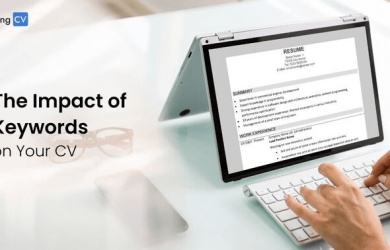Are you Confused? What to write in an email when sending a resume? Navigating the job application process can be overwhelming, especially when it comes to the important step of emailing your CV. Understanding what to write in an email when sending a CV is fundamental to making a positive first impression. This blog will provide you with practical tips and detailed instructions to enhance your job application’s effectiveness.

Introduction to Emailing Your CV
Crafting a well-written email to accompany your CV is as important as the CV itself. In this digital age, a majority of job applications are processed online, making your email the first point of contact with potential employers. Hence, it’s essential to get it right.
The Importance of Email in Job Applications
In your job hunt, the email you send acts as a bridge between you and your potential employer. It’s often the first impression you make. Consequently, what to write in an email when sending a CV should be given considerable thought and effort. This initial communication can set the tone for future interactions and potentially impact the decision to view your CV.
Crafting an Engaging Subject Line

Understanding the Weight of a Subject Line
Your email’s subject line is arguably the most critical part of your job application email. It is what prompts the recipient to open and read your email, making it crucial to ensure your CV gets noticed. A compelling subject line acts as a hook, grabbing the attention of busy recruiters.
Tips for an Effective Subject Line
- Clarity is Key: Clearly state the purpose of your email. For instance, “Application for Marketing Manager Position – John Doe.”
- Be Professional: Avoid casual language. Keep the tone professional and to the point.
- Be Specific: If you’re applying for a specific job posting, mention the job title or reference number.
- Personalise When Possible: If someone referred you, include their name in the subject line.
How to Compose the Email

Writing the Email Body
The body of your email should be concise yet informative. It’s where you give a brief introduction of yourself and state why you’re emailing.
Opening the Email
Begin with a formal greeting, addressing the hiring manager by name, if possible. Your first sentence should clearly state your purpose. For example, “I am writing to apply for the XYZ position, as advertised on your careers page.”
Highlighting Your Suitability
In a brief paragraph, highlight why you are a suitable candidate for the position. Mention key achievements or skills relevant to the job. However, avoid repeating your CV in detail.
Closing with a Call to Action
End your email with a polite closing statement. Express your eagerness to discuss your application in further detail and provide your contact information.
Attaching Your CV and Cover Letter

Best Practices for Attachments
Your CV and cover letter should be attached to the email in a professional and accessible format. Ensure that the file names are clear and descriptive, like “JohnDoe_CV.pdf” or “JaneSmith_CoverLetter.pdf”.
Technical Considerations
File Format: PDF is the most reliable format as it preserves your document’s formatting.
File Size: Ensure the attachments are not too large, preferably under 10MB.
Proofread and Test Before You Send
Before hitting send, it’s crucial to proofread your email and attachments for any spelling or grammatical errors. Additionally, send a test email to yourself to ensure everything appears as intended.
Maximise the Impact of Your CV Email
Create Your Message
Personalise your email to align with the company’s culture and the specific job role. Researching the company and incorporating your understanding into the email can demonstrate your genuine interest in the position.
The Importance of Customization
Customizing your email for each job application shows that you have put effort into understanding the company and the role. It’s not just about what to write in an email when sending a CV but how you write it to align with the employer’s expectations and company culture.
Adding Value Through Your Email
Your email should not just be a conduit for your CV but also add value to your application. Share insights or brief experiences that align with the company’s goals or the specific job role. This can set your application apart from others.
Showcasing Relevance
Link your skills and experiences to the job requirements or the company’s challenges. This demonstrates your ability to think critically about how you can contribute to the role and the organization.
3 sample emails for sending your resume to recruiters
Template 1

Template 2

Template 3

Understanding the Role of ATS in Job Applications
Many companies use Applicant Tracking Systems (ATS) to manage job applications. Understanding how these systems work can help you optimise your CV and email for better visibility.
Tips for ATS-Friendly Applications
- Keywords: Use keywords from the job description in your email and CV.
- Simple Formatting: Keep your CV format simple and ATS-friendly.
Following Up After Sending Your CV

Following up after sending your CV is as essential as sending one. It shows your continued interest in the position and keeps your application top of mind.
Timing Your Follow-Up
Wait at least a week before following up. This gives the hiring manager enough time to review your application without feeling pressured.
Writing an Effective Follow-Up Email
- Be Concise: Keep your follow-up email short and to the point.
- Reiterate Interest: Briefly restate your interest in the position and your qualifications.
Common Mistakes to Avoid
- Sending Generic Emails: Avoid sending the same email for every job application.
- Overly Casual Language: Maintain a professional tone throughout your email.
- Forgetting Attachments: Always double-check to ensure your CV and cover letter are attached.
Additional Tips for Success
Leveraging Your Network
If you have a contact within the company, mention their name (with their permission) in your email. This can add credibility to your application.
Networking Effectively
Networking can open doors and provide valuable insights into the company and its culture. Use your network wisely to enhance your job search.
The Role of Social Media
In today’s digital world, your online presence can also impact your job application. Ensure your LinkedIn profile is up-to-date and reflects your CV.
Managing Your Digital Footprint
Be mindful of what you share on social media, as potential employers may review your online profiles.
Final Thoughts
Your email accompanying your CV is a critical component of your job application. It’s not just about what to write in an email when sending a CV, but how you present yourself as the ideal candidate for the role.
Key Takeaways
- Tailor Each Email: Customize your email for each job application.
- Follow-up: Don’t hesitate to send a polite follow-up email.
- Professionalism: Maintain a professional tone and check for errors.
Sending your CV via email is more than just attaching a document; it’s an opportunity to make a meaningful first impression. By following these guidelines on what to write in an email when sending a CV, you can increase your chances of getting noticed and moving forward in the application process.
FAQs: What to Write in an Email When Sending a Resume
1. What should be the subject line of the email?
- The subject line should be clear and concise, mentioning the purpose of the email. For example, “Application for [Job Title] – [Your Full Name].”
2. How should I address the recipient in the email?
- Use a formal salutation such as “Dear [Hiring Manager’s Name]” or “To Whom It May Concern” if the specific name is not known.
3. What information should be included in the body of the email?
- Begin with a brief introduction, stating your intention to apply for the specific position. Mention where you found the job posting and express your enthusiasm for the opportunity. Attach your resume for their review.
4. Should I include a cover letter in the email?
- If a separate cover letter is not required, you can provide a concise version in the body of the email. Otherwise, attach the cover letter along with your resume.
5. How do I mention the attached resume in the email?
- Clearly state that your resume is attached for their consideration. For example, “Please find attached my resume for your review.”
6. Is it necessary to mention my contact information in the email?
- While it’s in your resume, including a brief professional signature with your full name and contact information reinforces your accessibility. It’s a good practice to make it easy for the employer to reach you.
7. Should I follow up after sending the email?
- If there’s a specified deadline for applications, wait until after that date to follow up. If not, a polite follow-up email expressing your continued interest can be sent about a week after the initial application.
8. How formal should the tone of the email be?
- Keep the tone professional and formal. Use polite language and avoid casual or informal expressions.
9. Is it important to proofread before sending?
- Yes, proofreading is crucial. Check for grammatical errors, typos, and ensure that the content is clear and coherent. A well-presented email reflects positively on your attention to detail.
10. Any additional tips for a successful email application?
- Tailor your email to the specific job and company. Highlight relevant skills and experiences, and express genuine interest in the position. Keep the email concise and focused on why you are a suitable candidate.





